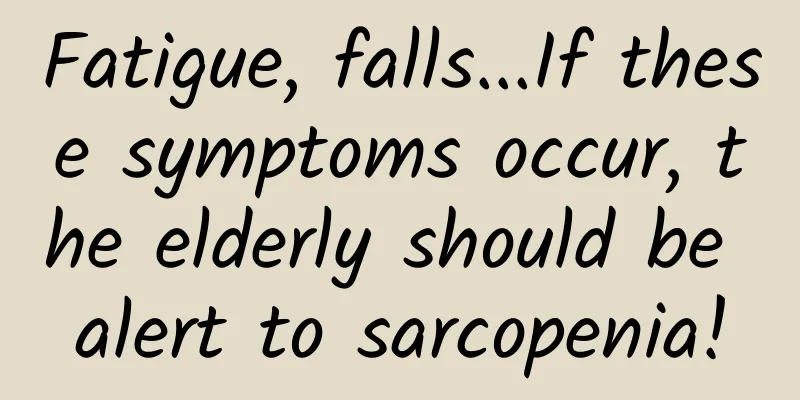Physiological hemostasis process

|
Some girls will have irregular menstruation after their period. At this time, their period will not go away for a long time. This situation will cause certain harm to women. Although bleeding during menstruation is the shedding of the inner wall of the uterus, it will not really lose blood in the female body, but it will also cause women's qi and blood to be weak, so it is necessary to stop bleeding when necessary. So what is the process of physiological hemostasis? 1. The process of physiological hemostasis The process of physiological hemostasis mainly includes three processes: vasoconstriction, platelet thrombus formation and blood coagulation. 1. Vasoconstriction Physiological hemostasis first manifests itself as contraction of the damaged blood vessel and nearby small blood vessels, resulting in a reduction in local blood flow. The mechanisms include: reflex vasoconstriction caused by damaging stimulation, myogenic contraction of local blood vessels caused by vascular wall damage, and the release of vasoconstrictor substances such as 5-HT and TXA2 by platelets adhered to the injured area. 2. Platelet thrombosis The subendothelial collagen is exposed, and a small number of platelets adhere to the subendothelial collagen. The adhered platelets further activate the signaling pathway within the platelets, leading to platelet aggregation. The release of ADP by locally damaged red blood cells and the thrombin generated during local coagulation can both activate platelets and release endogenous ADP and TXA2, thereby activating and recruiting more platelets to form a platelet hemostatic plug to block the wound and achieve initial hemostasis, which is called primary hemostasis. 3. Blood coagulation After a blood vessel is damaged, coagulation factors are activated in a certain order to generate thrombin, which eventually converts the soluble fibrinogen in the plasma into insoluble fibrin, which are interwoven into a network to strengthen the hemostatic plug, which is called secondary hemostasis. It includes three basic steps: prothrombin complex formation, thrombin activation and fibrin generation. 2. Coagulation Process 1. Formation of the prothrombinase complex (1) Intrinsic coagulation pathway It refers to the process in which all factors involved in coagulation come from the blood and the coagulation process is usually initiated by the contact of blood with the negatively charged surface of a foreign object. FXII + foreign body surface → FXIIa → XIa + Ca2+ → FIXa + Ca2+ + FVIIIa → Factor X enzyme complex → FXa. FVIII and vWF in plasma are non-covalently combined to form a complex, which improves its stability and prevents FVIII from being degraded by activated protein C. Therefore, vWF deficiency in von Willebrand disease will lead to a decrease in FVIII. APTT (activated partial thromboplastin time) is a relatively sensitive and most common screening test for the intrinsic coagulation system. Prolonged APTT is common in factors XII, XI, IX, VIII, X, V, II, PK (prokallikrein), HMWK (high molecular weight kininogen) and fibrinogen deficiencies, such as hemophilia (factor VIII/IX deficiency). |
<<: What to do if an 8-year-old girl has precocious puberty
>>: The principle of curettage and hemostasis
Recommend
Why does shingles increase the risk of stroke?
Herpes zoster is a common infectious skin disease...
How to double low blood value during pregnancy
If we want to have a healthy baby, we need to pay...
Can I take 999 cold granules when I am pregnant?
Can I take 999 Cold Granules when I’m pregnant? D...
What is physiological leucorrhea with blood
Physiological leucorrhea is generally colorless a...
What are the dangers of having sex right after menstruation?
It is normal for young couples to have sex three ...
Brown vaginal discharge after ovulation bleeding
Female friends will experience bleeding symptoms ...
What to do if one side has more milk than the other during breastfeeding
During breastfeeding, one side has more milk than...
What is the reason for watery and bloody leucorrhea?
Watery leucorrhea with streaks of blood is a sign...
What is the reason for a small pimple on the vulva?
The health of the genitals deserves everyone'...
Symptoms before menstruation after abortion
When a woman's menstrual period stops after s...
How to treat early stage uterine tumor?
Uterine tumor is a disease with a very high incid...
What do you need to supplement when preparing for pregnancy?
Conceiving a baby is the most sacred moment in a ...
What causes pain in the lower left abdomen during pregnancy?
Generally, pregnant women will experience contrac...









